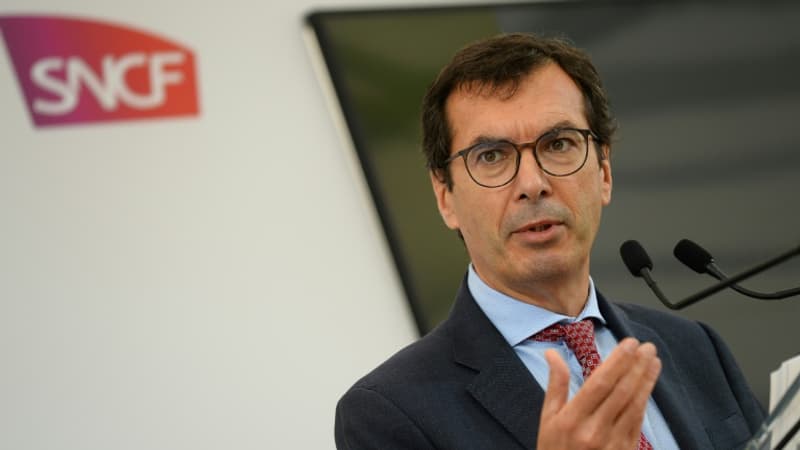SNCF Voyageurs’ electricity bill is expected to rise from 1.6 billion euros to 1.7 billion euros next year, but the company “has not yet decided” what the impact on ticket prices will be, the CEO said on Wednesday. of the SNCF, Jean-Pierre Farandou. .
Despite the hedging system that has allowed SNCF Voyageurs to avoid buying most of its electricity at market prices, the bill will double to around 600 million this year, Jean-Pierre Farandou said during a Senate hearing. “Next year we are still covered but a little less. (…) With the price of the moment, we would have at this point an extra cost for electricity alone of 1,600 to 1,700 million euros,” he warned.
Half of the sum will correspond to TER and Francilien (in Ile-de-France), and will have to be compensated by the local authorities. “That’s several tens of millions a year for each of the regions,” he noted. The other half refers to the TGVs, operated at its own risk and expense by SNCF Voyageurs. “If we had a direct impact (this increase) on the cost of the ticket, we would have to increase TGV tickets by 10%,” said Jean-Pierre Farandou, speaking of a quick “table corner calculation”.
“We are not going to pass on 100% of the costs to customers”
“We haven’t decided what we’re going to do yet,” he said, while SNCF is also facing rising wages, the price of supplies, the cost of labor, etc. “We will discuss.” “Rest assured that we will not pass on 100% of the costs to customers,” guaranteed the head of the SNCF, noting that “the government is also following this closely.”
SNCF Voyageurs consumes approximately 6 TWh of electricity per year, that is, between 1 and 2% of national consumption. “In the name of the sobriety plan, there will be no withdrawal of trains,” the leader also stressed.
Jean-Pierre Farandou once again advocated before the senators for a major investment plan in the railways, with the aim of doubling the share of the train in about fifteen years. The railways are aging, the action plan of SNCF Réseau recently signed with the State is considered “insufficient” to rejuvenate them and, a fortiori, to modernize them, he lamented. Jean-Pierre Farandou asks for “a true programming law”, and from the 2023 budget the contribution by the State of an additional one billion euros to compensate for inflation and continue the work.
Source: BFM TV


